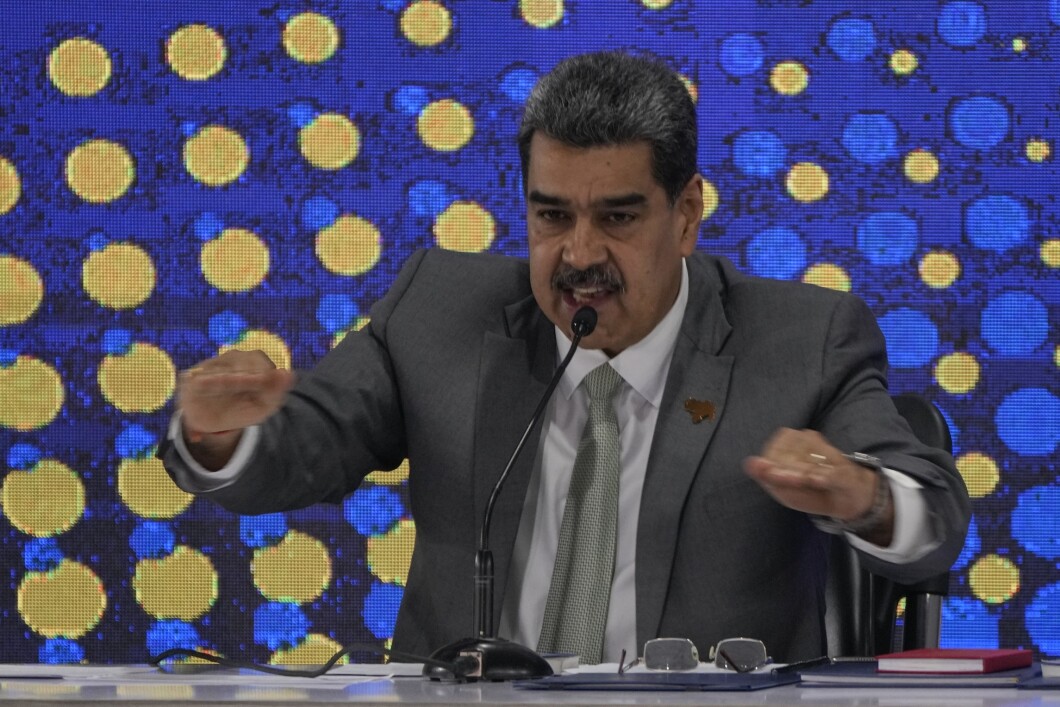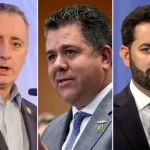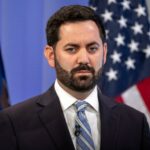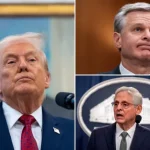
Nicolas Maduro’s proposal to annex an energy-rich region of Guyana earlier this month has stoked anxiety that Russian President Vladimir Putin might have a copycat in Venezuela.
“Any action that amounts to use of force to try to change these borders would be illegitimate, should not be undertaken,” White House deputy national security adviser Jon Finer said Thursday at an Aspen Security event in Washington, D.C. “These continued threats that the Venezuelan government keeps making should stop.”
HOME ECONOMICS: THE ALTERNATIVE TO MORTGAGES WITH SKY-HIGH RATES
Maduro ordered Venezuela’s state oil company to prepare for drilling in the region that his regime calls “Guayana Esequiba,” just days after claiming that a referendum in Venezuela furnished a political mandate for the controversy. His willingness to back that political maneuver with military force remains unclear, but his renewal of a long-standing territorial dispute has been cause for alarm.
“Through collaborative work, the sole authority and the Bolivarian National Armed Forces will deploy all their logistical and human potential in the sector,” Venezuelan Defense Minister Vladimir Padrino Lopez said Wednesday. “We are already coordinating to promptly fulfill the mandate of the people with all the social policies towards the territory of Guayana Esequiba. There is no rest, no break, and we work for our Esequibo.”
That saber-rattling has irritated Maduro’s neighbors. “If there’s one thing we don’t want here in South America, it’s war,” said neighboring Brazilian President Luiz Inacio Lula da Silva, who restored diplomatic relations with Maduro after taking office at the beginning of the year. “We don’t need conflict. We need to build peace.”

The controversy is erupting less than two months after Guyana announced a “significant discovery” of energy resources in Essequibo, the latest in a series of high-value finds since Exxon Mobil began drilling in the area in 2015. Those discoveries may have renewed Maduro’s interest in challenging a border drawn between Venezuela and Guyana in 1899, when the smaller Latin American state was still a British colony.
“These borders were settled in 1899,” British Foreign Secretary David Cameron said Thursday at the State Department. “I see absolutely no case for unilateral action by Venezuela. It should cease; it is wrong.”
Cameron made the remarks on a diplomatic tour around Washington, where he has sought to persuade Congress to pass a new package of aid for Ukraine. That legislation has stalled in part due to growing Republican opposition to support for Ukraine.
“Obviously, sort of revisionist powers and challengers such as Maduro and Venezuela, they will be watching the breakdown of a foreign policy consensus in Washington,” Center for Strategic and International Studies nonresident senior associate Lauri Tahtinen. “All kinds of revisionists will try to take advantage at a moment like this — lots of dormant issues have come back to the surface, have reemerged in the last couple years.”
Venezuela jettisoned that border agreement in 1962 on the grounds that it was a “political transaction carried out behind Venezuela’s back and sacrificing its legitimate rights.” The stoking of the controversy now offers Maduro an opportunity to curry favor with the Venezuelan populace ahead of a presidential election scheduled for next year.
“In trying to rally Venezuelans, both Chavistas and in the non-Chavistas, this is one of the few things is where there is a broad sympathy across both spectrums on that issue,” U.S. Army War College research professor Evan Ellis, a former member of the State Department policy planning staff, told the Washington Examiner. “It’s a bit reckless, even if he doesn’t intend to go further. I think it has a lot of people very embarrassed and very nervous.”
Venezuela’s maneuver has drawn sharp condemnation from Organization of American States Secretary-General Luis Almagro. “The Venezuelan dictatorship is adopting jurisdictional actions in matters of defense, nationality, administration and economics in clear violation of the jurisdiction and territorial integrity of another State,” the OAS chief, Maduro’s nemesis during the political crisis around Venezuela’s 2018 presidential election, said. “The recent actions taken by the regime in Venezuela not only jeopardize the development and stability of Guyana, but also pose a broader risk to the security of Latin America and the Caribbean — a situation that has been repeatedly condemned by the Caribbean Community (CARICOM).”
Almagro characterized the Sunday referendum itself, in which Maduro claimed that 10 million votes were cast in favor of his maneuver, although external observers estimate that the real tally may be closer to 2 million, as an “undemocratic use of democratic processes.” It may also have provided Maduro and his associates an opportunity to evaluate their ability to mobilize voters ahead of the next election.
“This rehearsal was a good way for the regime to see how much [support] they could mobilize,” a Republican aide on the House Foreign Affairs Committee told the Washington Examiner. “They definitely got what they needed in terms of taking the temperature of the public. They know you know, who showed up, who can show up, where the weak areas are.”
CLICK HERE TO READ MORE FROM THE WASHINGTON EXAMINER
Yet Tahtinen, while acknowledging that “Maduro’s fighting force isn’t exactly built to do offensive warfare,” cautioned against underestimating Maduro’s desire for the oil on the other side of the border.
“If there’s any lesson from Ukraine, or the Hamas charter … it generally behooves us to take people at their word, when they say threatening things that may even seem slightly unhinged,” Tahtinen said.





